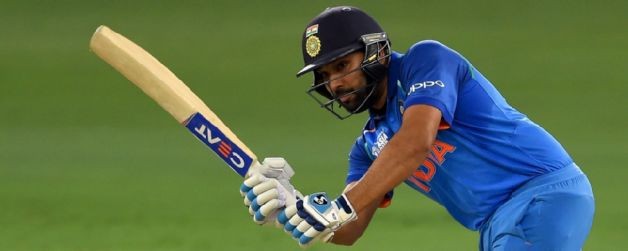
It was in 2008 in a warm-up game during Australia’s tour of India that two youngsters scored centuries. Rohit Sharma had already been part the World T20 champion squad a year earlier. A few ODIs old, Virat Kohli was at the time better known as the U-19 World Cup winning skipper.
Everybody knows that Kohli zoomed off to another level soon, making more than most of the chances that came his way. Rohit, on the other hand, remained an enigma for a long time. In the periphery for being unable to make opportunities count, he remained a side character, whose ability was acknowledged but temperament questioned.
That the Indian campaign at the World Cup is still looking good going by the team’s position on the league table despite a wobbly middle-order, has a lot to do with the temperament Rohit has shown.
Three centuries in six matches is no ordinary feat. More noticeable is the way they have been crafted. Gone are the flashy shots and the impetuosity which kept him from becoming consistent. On show is a new Rohit, who values his wicket and understands its value in the scheme of things.
Going by his words, a sense of responsibility has led to this change. Not that it has happened now. It had been going on for a while and seen at the World Cup is the fruition of a process that started after he started opening in ODIs.
“It’s a duty, actually. As long as I'm playing, I won’t think that I have done this. Rather, it’s like I have to keep doing it. It's job because in cricket we say forget what happened in the past, focus on the present. That’s what I try and do. Stay in the present as much as possible and not think about the past,” he said after the century against England.
This is obvious from the way he is batting. A batsman with a range of strokes, he has eschewed instinct and played according to the situation. If it demanded playing dot balls at a stretch during the first power play, he did that. If it meant slow scoring rate, he accepted that. Crucially, he hasn’t let the batsman’s ego take over and respected bowlers instead when they deserved it.
“Every game for me is a new game, and I try and do the same, see if I can finish the game or bat as long as possible and get the team to a good position. I've said this before that a majority of the runs have been scored by our top three.
"That's why we are here, to score runs, and we'll keep doing that as long as we’re playing. If someone's batting well and the team looks up to that individual, it becomes his responsibility to bat as many overs as possible.”
Big deal? Not quite, considering that this is precisely the job of batsmen, in every team. But from India’s point of view, it’s more than important because of the uncertainty lower down.
For the tail not to begin from the middle overs, it’s imperative that the big guns be there. And following a metamorphosis of sorts, a player with questionable temperament is doing this job.


.jpeg)

